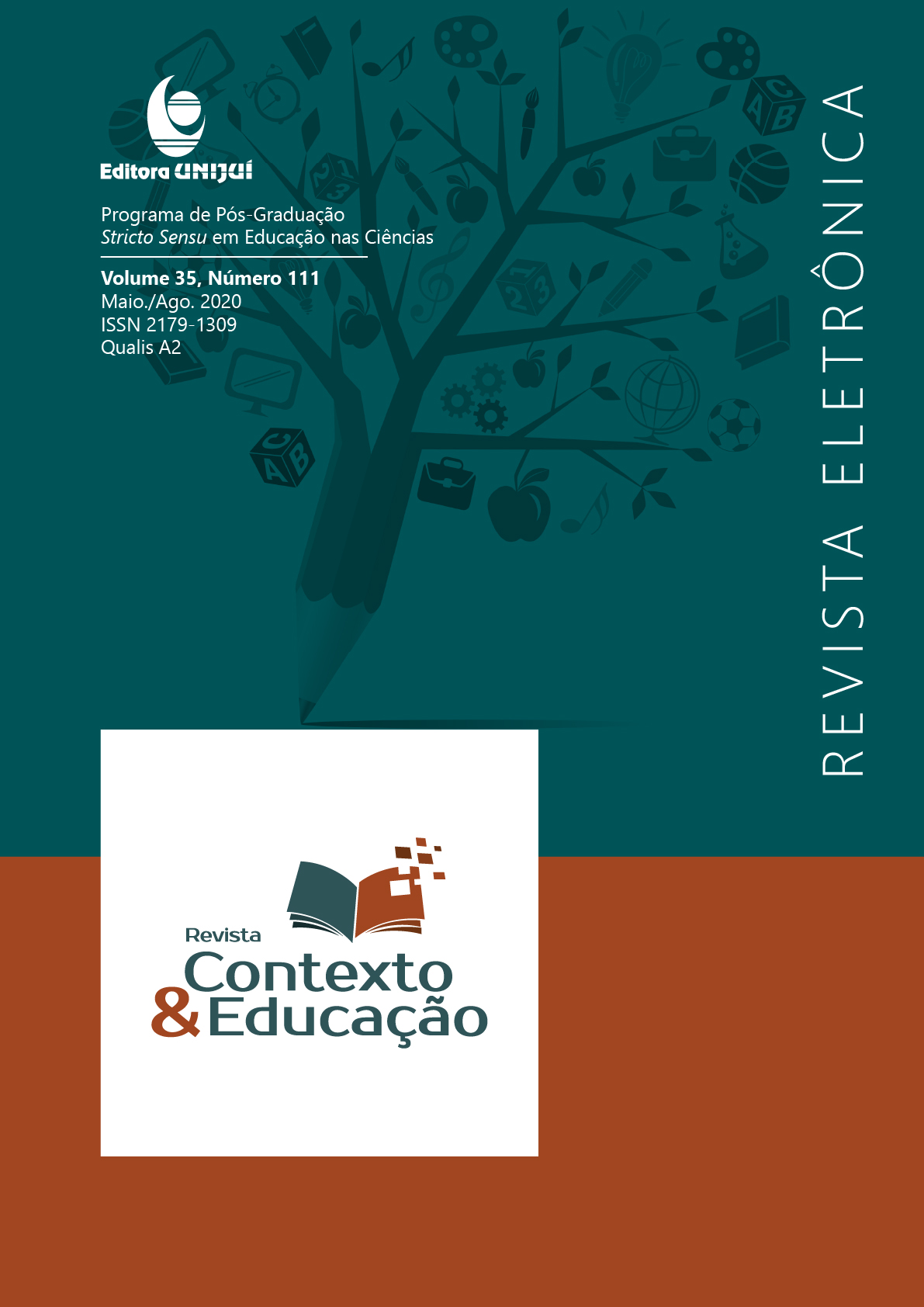BASE NACIONAL COMUM CURRICULAR E (SEMI) FORMAÇÃO: QUAIS OS DILEMAS DA ESCOLA ATUAL?
DOI:
https://doi.org/10.21527/2179-1309.2020.111.9-28Palavras-chave:
BNCC. Escola. Teoria Crítica. Formação.Resumo
Este artigo trata do tema (semi) formação, Base Nacional Comum Curricular e escolarização. É resultado de reflexões e problematizações oriundas da disciplina de Currículo e Escola por mim ministrada junto aos cursos de Licenciatura de uma Universidade do Estado de São Paulo. Tem como objetivo geral refletir criticamente sobre as influências que a BNCC traz às políticas de formação docente na atualidade. Além do suporte bibliográfico educacional específico, o artigo ampara-se nas discussões teóricas desenvolvidas por Theodor Adorno em seus textos filosófico-educacionais discorrendo sobre o conceito de (semi) formação e educação. A análise proposta conclui que a BNCC poderá transformar a estrutura curricular brasileira não pelo caminho da formação cultural (Bildung), mas pelos interesses mercadológicos baseados em aspectos como competitividade, produtividade e empreendedorismo, reduzindo as possibilidades de crítica. Assim, a crítica adorniana à sociedade performática emerge como um referencial teórico que contempla a possibilidade de desenvolver em bases diferentes a análise do processo social em que se insere a educação escolar e seus vínculos com a semiformação.
Downloads
Publicado
Como Citar
Edição
Seção
Licença
Ao publicar na Revista Contexto & Educação, os autores concordam com os seguintes termos:
Os trabalhos seguem a licença Creative Commons Atribuição 4.0 Internacional (CC BY 4.0), que permite:
Compartilhar — copiar e redistribuir o material em qualquer meio ou formato;
Adaptar — remixar, transformar e criar a partir do material para qualquer fim, inclusive comercial.
Essas permissões são irrevogáveis, desde que respeitados os seguintes termos:
Atribuição — os autores devem ser devidamente creditados, com link para a licença e indicação de eventuais alterações realizadas.
Sem restrições adicionais — não podem ser aplicadas condições legais ou tecnológicas que restrinjam o uso permitido pela licença.
Avisos:
A licença não se aplica a elementos em domínio público ou cobertos por exceções legais.
A licença não garante todos os direitos necessários para usos específicos (ex.: direitos de imagem, privacidade ou morais).
A revista não se responsabiliza pelas opiniões expressas nos artigos, que são de exclusiva responsabilidade dos autores. O Editor, com o apoio do Comitê Editorial, reserva-se o direito de sugerir ou solicitar modificações quando necessário.
Somente serão aceitos artigos científicos originais, com resultados de pesquisas de interesse que não tenham sido publicados nem submetidos simultaneamente a outro periódico com o mesmo objetivo.
A menção a marcas comerciais ou produtos específicos destina-se apenas à identificação, sem qualquer vínculo promocional por parte dos autores ou da revista.
Contrato de Licença (para artigos publicados a partir de outubro/2025): Os autores mantém os direitos autorais sobre seu artigo, e concedem a Revista Contexto & Educação o direito de primeira publicação.


